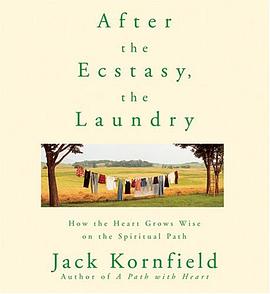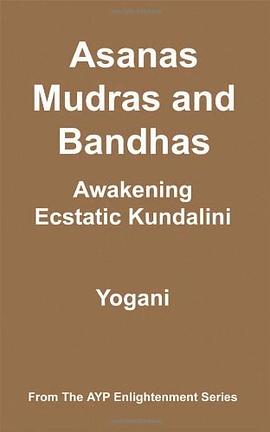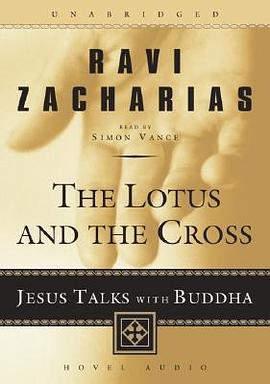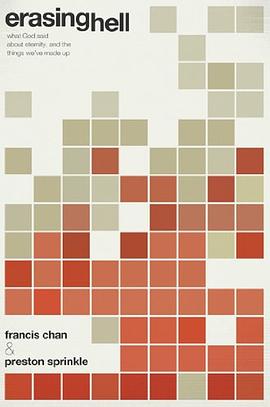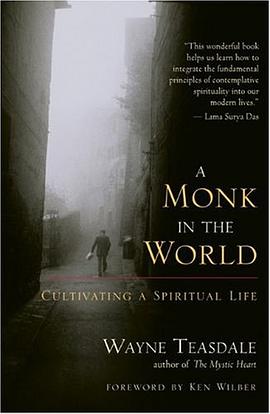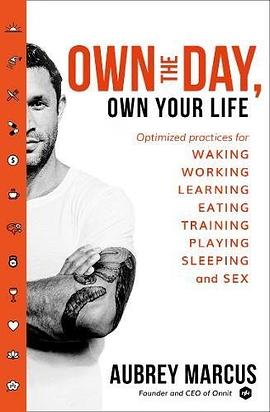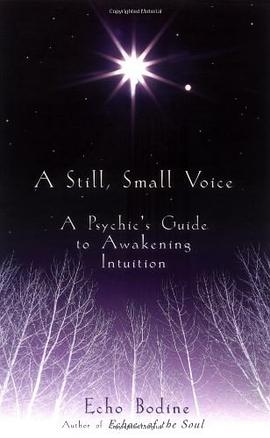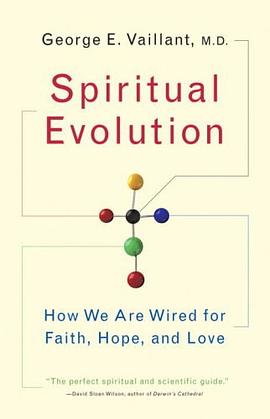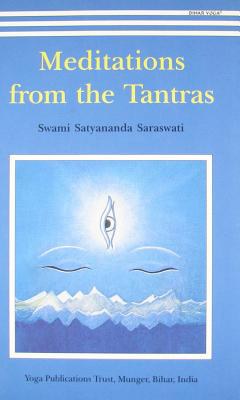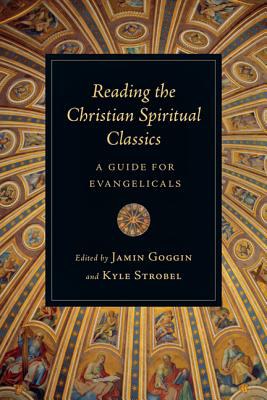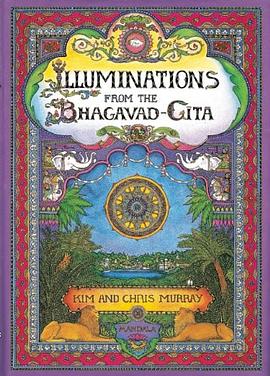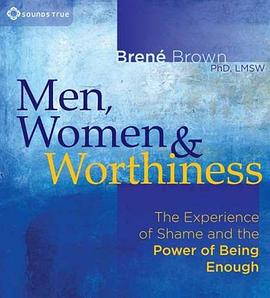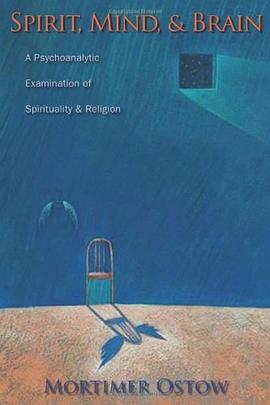

具体描述
Preeminent psychoanalyst Mortimer Ostow believes that early childhood emotional attachments form the cognitive underpinnings of spiritual experience and religious motivation. His hypothesis, which is verifiable, relies on psychological and neurobiological evidence but is respectful of the human need for spiritual value. Ostow begins by classifying the three parts of the spiritual experience: awe, Spirituality proper, and mysticism. After he pinpoints the psychological origins of these feelings in infancy, he discusses the foundations of religious sentiment and practice and the brain processes associated with spiritual experience. He then focuses on spirituality's relationship to mood regulation, and the role of negative spirituality in fostering religious fundamentalism and demonic possession. Ostow concludes with an analysis of an essay by the psychoanalyst Donald M. Marcus, who recounts his own spiritual experience during a Native American-style "vision quest" in the woods. Marcus's account demonstrates the constructive potential of spirituality and the way in which spirituality retrieves and recapitulates feelings of attachment to the mother. Persuasively and brilliantly argued, Spirit, Mind, and Brain brings the disciplines of religion, behavorial neuroscience, and philosophy to bear on a groundbreaking new method for understanding religious ritual and belief.
作者简介
目录信息
读后感
评分
评分
评分
评分
用户评价
当我开始阅读《Spirit, Mind, and Brain》时,我并没有抱有太高的期望,因为我对这个领域并非专家。然而,这本书以一种令人惊讶的连贯性和深刻性,迅速吸引了我。作者的写作风格非常平易近人,即使是对于一些复杂的科学概念,他也能够用非常直观的比喻和例子来解释,让我这个门外汉也能理解。我尤其喜欢他对于“意识”的探讨,他并没有简单地将其归结于大脑的物理活动,而是巧妙地将它与我们的情感、记忆、以及我们对世界的感知联系起来。书中关于大脑可塑性的章节,更是让我大开眼界,它揭示了我们的思维模式并非一成不变,而是可以通过学习和练习不断改变和优化。这对于我来说,是一种巨大的鼓舞,因为它意味着我们有能力去塑造自己的内心世界。作者还引用了大量的研究和案例,来支持他的观点,这使得他的论证更加有力,也增加了我对内容的信任度。我从中学到了很多关于如何更好地理解自己和他人的方法,也对如何培养积极的心态有了更深入的认识。这本书不仅在知识层面给予了我很多启迪,更在情感层面触动了我。它让我更加珍视生命中的每一个瞬间,也更加愿意去探索内在的无限可能。我毫不犹豫地向所有对人类心智和精神世界感兴趣的朋友推荐这本书,它绝对是一场视觉和思想的双重盛宴。
评分《Spirit, Mind, and Brain》这本书是一次令人振奋的心智之旅,它以一种独特的方式,将科学的严谨与哲学思辨巧妙地融合。作者的写作风格,既充满了学术的深度,又不失大众的可读性,使得那些复杂的神经科学概念,在我阅读时变得格外清晰和生动。我特别着迷于书中关于“幸福”的探索。作者并没有将其简单地归结于外部环境或物质财富,而是深入分析了幸福感在大脑中的神经基础,以及如何通过调整我们的思维模式和行为习惯来提升幸福感。他探讨了感恩、慷慨和连接感在提升幸福感方面的重要性,这让我开始思考如何在日常生活中更有意识地去培养这些积极的特质。书中关于“衰老”的章节也令我印象深刻。作者以一种充满希望的视角,阐述了大脑在衰老过程中依然能够保持可塑性和学习能力,以及如何通过健康的生活方式和积极的心智训练来延缓认知能力的下降。这给了我极大的鼓舞,让我相信即使在生命的晚年,我们依然能够保持活力和智慧。这本书不仅仅是对大脑的探索,更是一次关于如何活得更健康、更快乐、更有意义的深刻反思,它为我带来了持久的启迪和动力。
评分《Spirit, Mind, and Brain》这本书最让我印象深刻的是其对“灵性”概念的处理方式。我一直对科学与神秘主义的界限感到模糊,而这本书则提供了一个引人入胜的视角来弥合这一鸿沟。作者并没有将灵性视为一种超自然的力量,而是将其置于大脑的复杂活动和我们与世界互动的方式之中进行解读。他深入探讨了冥想、正念以及其他精神实践如何影响我们的大脑结构和功能,以及这些实践如何帮助我们实现更深层次的自我认知和情感平衡。我特别欣赏书中对于“高峰体验”的分析,作者将这些短暂而强烈的意识状态与大脑的特定活动模式联系起来,但同时也没有忽视它们所带来的深刻的个人意义和精神转化。这是一种非常平衡的视角,既尊重科学的严谨性,又承认了人类精神体验的独特性和主观性。通过阅读这本书,我开始重新审视我自己的精神旅程,并思考如何在日常生活中融入更多的正念和感恩。这本书不仅仅是一本科普读物,更是一本引导我进行自我探索和精神成长的指南。它鼓励我去拥抱内心的复杂性,去理解我们思维和情感的深层根源。我强烈推荐这本书给那些渴望在科学和精神之间找到平衡,并对人类意识的奥秘充满好奇的人们。
评分当我开始阅读《Spirit, Mind, and Brain》这本书时,我带着一种既期待又略带怀疑的心情。毕竟,“灵性”和“心智”这两个词汇常常与科学的严谨性似乎有些距离。然而,作者以其深厚的学识和卓越的叙事能力,成功地将这些看似难以捉摸的概念,置于科学的框架下进行了清晰而引人入胜的阐释。他对于“自我意识”的探讨,让我意识到“我”的形成并非仅仅是大脑某个特定区域的功能,而是无数神经信号、情感体验和记忆碎片共同作用的结果。这是一种解放性的认知,它让我不再执着于寻找一个单一的、固定的“自我”,而是拥抱那个不断变化、不断成长的多面体。书中关于“信仰”和“希望”的论述也令我印象深刻。作者从神经科学的角度解释了这些心理状态是如何影响我们的行为和决策,以及它们如何成为我们应对生活挑战的重要支撑。他指出,即使在最困难的时刻,我们的大脑依然能够产生积极的预期和信念,这本身就是一种强大的力量。这本书不仅仅是一本科普读物,更是一本关于如何更好地理解自己、接纳自己、并最终活出更精彩人生的指南。它让我对人类心智的复杂性和无限可能性,充满了敬畏和赞叹。
评分在我翻开《Spirit, Mind, and Brain》这本书时,我正处于一个对自身存在感到困惑的时期,渴望找到一些能够解释我内心世界奥秘的线索。而这本书,恰如其分地满足了我的需求。作者以一种非常温和但又极具洞察力的方式,引导我穿越大脑的迷宫,探索意识的深层结构。我尤其欣赏他对于“情绪”的细致分析,他不仅仅将情绪简单地归结为化学物质的反应,而是将其与我们的过往经历、社会互动以及我们对世界的解读联系起来。这让我意识到,情绪并非不可控的野兽,而是可以被理解、被引导的信号。书中关于“记忆”的探讨也令我大开眼界,作者揭示了记忆的形成、储存和提取过程的复杂性,以及记忆如何塑造了我们的身份认同。这让我开始重新审视自己与过去的联系,以及如何以一种更健康的方式处理那些不愉快的记忆。这本书的价值在于,它不仅仅提供了科学知识,更重要的是,它鼓励我去进行更深层次的自我反思和个人成长。它让我意识到,理解我们的头脑,就是理解我们自己,而这份理解,是通往内心平静和幸福的钥匙。
评分《Spirit, Mind, and Brain》这本书就像一个精美的万花筒,每一次翻阅都能看到不同的绚丽图案。作者以其独特的视角,将科学、哲学和个人经验巧妙地融合在一起,为我呈现了一幅关于人类内在世界的全景图。我对于书中关于“直觉”的论述尤为感兴趣。作者并没有将其神秘化,而是将其置于大脑快速处理信息和潜意识思维的框架下进行解释。他探讨了直觉如何在我们做出决策时发挥重要作用,以及如何培养更敏锐的直觉力。这对我这个经常依赖逻辑分析的人来说,是一种全新的思维方式。这本书也让我对“信念”的形成有了更深入的理解。作者阐述了信念是如何在大脑中根深蒂固,以及它们如何影响我们的行为和对现实的感知。这让我开始反思自己的一些固有的信念,并思考它们是否真的服务于我的成长。我喜欢作者那种既有深度又不失趣味的写作风格,他能够将复杂的概念用生动的语言表达出来,让读者在轻松愉快的阅读体验中获得知识和启迪。这本书不仅仅是对大脑运作的科普,更是一次关于如何活得更充实、更有意义的深刻思考。它鼓励我去探索自己内在的无限可能,去拥抱生命中的未知和挑战。
评分这本书的封面设计就充满了哲学意味,那种沉静又深邃的色调,立刻吸引了我。我一直对人类意识的本质感到好奇,尤其是在科学与神秘主义之间寻找连接点。当我翻开《Spirit, Mind, and Brain》的扉页,我期待的是一场关于人类内在世界的深度探索,关于我们如何感知、思考,以及是否存在超越物质层面的“灵性”存在。这本书在这一点上,并没有让我失望。作者以一种非常引人入胜的方式,将神经科学的最新发现,与古老的哲学思想以及心理学的洞见相结合。他没有回避那些看似难以解释的现象,比如直觉、顿悟,甚至是某些濒死体验的描述。相反,他试图用一种更为宏观的视角来审视这些,将它们置于大脑活动和更广泛的宇宙语境下进行解读。读这本书的过程,就像是在一场思想的盛宴中漫步,时而沉浸在神经递质的奇妙运作中,时而又被形而上学的深邃所吸引。我尤其欣赏作者在处理复杂概念时所展现出的清晰度和逻辑性,他能够将抽象的概念具象化,让读者在理解科学原理的同时,也能感受到其中的诗意和美感。这本书不仅仅是关于大脑的运作机制,更是一次关于“我是谁”的深刻追问。它挑战了我许多固有的观念,也为我打开了新的思考维度。我开始重新审视自己与周围世界的关系,以及那些难以言喻的情感和经历。总而言之,这是一本值得反复阅读和深思的书籍,它提供了一种看待人类存在的新视角,充满了启发性和智慧。
评分《Spirit, Mind, and Brain》这本书给我带来的,是一场关于人类内在奥秘的深度挖掘。作者以其非凡的洞察力,将神经科学的最新发现、心理学的深刻见解以及古老的哲学智慧,融合成了一部引人入胜的著作。我尤其被书中关于“洞察力”的描述所吸引。作者并没有将其视为一种神秘的启示,而是将其解释为大脑在处理信息、整合经验和识别模式过程中产生的,一种更深层次的理解。他探讨了如何通过冥想、反思和与他人的交流,来培养更敏锐的洞察力,从而更好地理解自己和周围的世界。这对我而言,是一种巨大的价值,它鼓励我去主动寻求那些能够深化我理解的经历和知识。书中关于“共情”的阐述也令我印象深刻。作者深入分析了共情在大脑中的神经机制,以及它在人际关系和社会互动中的重要作用。他指出,共情能力可以通过训练和有意识的练习来增强,这让我开始更加关注如何与他人建立更深层次的情感连接。总而言之,这本书不仅仅是关于大脑的科学指南,更是一本关于如何成为一个更完整、更有智慧、更富同情心的人的指引。它为我带来了深刻的自我认知,也激发了我对人生更广阔的探索。
评分《Spirit, Mind, and Brain》这本书为我打开了一扇通往人类意识奇妙世界的大门。作者以一种令人着迷的叙事方式,将神经科学的最新发现与古老的哲学智慧融为一体,为我呈现了一幅关于人类精神世界的多维度画卷。我尤其被书中关于“创造力”的论述所吸引。作者并没有将创造力视为一种天赋,而是将其解释为大脑不同区域协同工作的产物,以及一种可以通过特定训练来培养的能力。他探讨了灵感如何在大脑中萌发,以及如何通过开放的心态和持续的练习来激发和释放我们的创造潜能。这对我这个在工作中需要不断产生新想法的人来说,是一种巨大的启示。这本书也让我对“学习”有了更深的理解。作者揭示了大脑在学习过程中所发生的奇妙变化,以及如何通过有效的学习策略来优化我们的认知能力。他强调了终身学习的重要性,以及我们每个人都有能力不断地扩展自己的知识和技能。读完这本书,我感到自己对人类的潜能有了更深的认识,也更加相信通过不断的学习和探索,我们可以实现更加充实和有意义的人生。
评分在阅读《Spirit, Mind, and Brain》的过程中,我发现自己仿佛踏上了一段穿越心智迷宫的奇妙旅程。作者以一种如同老友般亲切的笔触,引导着我深入探索人类最核心的奥秘。他没有使用枯燥乏味的学术术语,而是将神经科学的最新发现,如神经递质的微妙舞蹈、神经网络的复杂交织,以及大脑可塑性的惊人潜力,都描绘得栩栩如生。我尤其着迷于作者对于“自我”的剖析,他从大脑的各个层面,从基础的生存本能到高级的抽象思维,层层递进地揭示了自我意识的形成机制。这本书让我意识到,我们所认为的“我”,并非一个固定不变的实体,而是一个动态的、不断被重塑的体验集合。书中关于情感的阐述也令我印象深刻,作者将复杂的情绪反应归结于大脑深处的古老机制,并探讨了我们如何通过理解和管理这些机制来获得更好的心理健康。这是一种解放性的认识,它让我不再害怕自己的情绪波动,而是将其视为一种可以学习和引导的力量。读完这本书,我感到自己对人类的理解又进了一层,我更加珍惜与他人建立连接的时刻,也更加愿意去倾听自己内心的声音。这本书无疑是我近期阅读过的最有价值的书籍之一,它为我带来了深刻的洞察和持久的启发。
评分union with the mother, "normal mysticism"
评分union with the mother, "normal mysticism"
评分union with the mother, "normal mysticism"
评分union with the mother, "normal mysticism"
评分union with the mother, "normal mysticism"
相关图书
本站所有内容均为互联网搜索引擎提供的公开搜索信息,本站不存储任何数据与内容,任何内容与数据均与本站无关,如有需要请联系相关搜索引擎包括但不限于百度,google,bing,sogou 等
© 2026 book.quotespace.org All Rights Reserved. 小美书屋 版权所有

